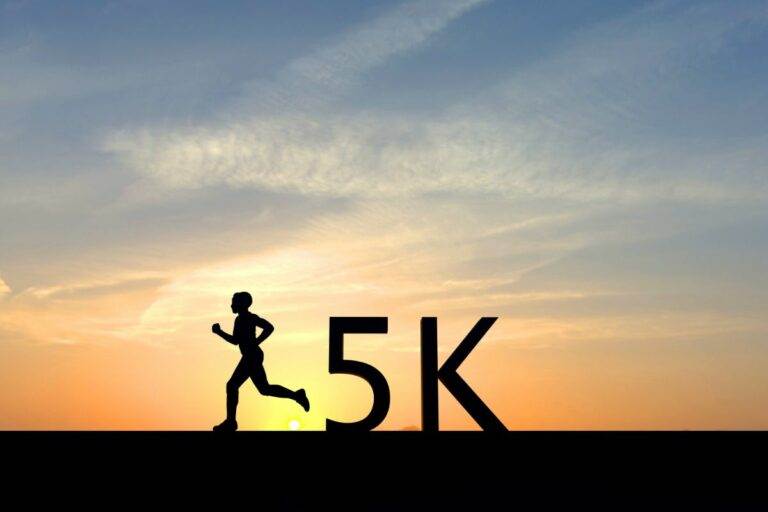Why the ‘Impossible’ Paris Marathon Course Created Olympic History

The greatest marathon runner of all time dropped out. A woman made Olympic history by running three grueling races. And a course deemed ‘too difficult’ produced the race of a lifetime…
The Paris Olympic Marathon course was brilliantly designed, offering spectators a thrilling experience, particularly during the women’s race finale.
Despite the challenging route, the men’s and women’s competitions saw new Olympic records set, a testament to the favorable weather conditions.

The course featured two significant hills with a total elevation gain of 430 meters (1,430 feet), starkly contrasting to the mere 70 meters (240 feet) gain in faster marathons like Berlin and Chicago.
These elevation changes affected elite runners’ pace less than expected.
Weather conditions were warm but not scorching, with temperatures hovering in the mid-60s Fahrenheit under sunny skies. Parts of the route provided welcome shade for the runners.
Comparison Between Marathon World Record Times and Paris Olympics 2024 Times

- World Record: 2:00:35 (Kelvin Kiptum, Chicago Marathon 2023)
- Olympic Record: 2:06:26 (Tamirat Tola, Paris 2024)
- Difference: 5 minutes and 51 seconds
- Percentage difference: 4.85%
- World Record: 2:11:53 (Tigst Assefa, Berlin Marathon 2023)
- Olympic Record: 2:22:55 (Sifan Hassan, Paris 2024)
- Difference: 11 minutes and 2 seconds
- Percentage difference: 8.37%
Comparison of the Routes

- Paris Olympic Marathon 2024: 435 meters (1,430 feet) of elevation gain, 438 meters (1,437 feet) of descent
- Berlin Marathon: 73 meters (241) feet of elevation gain, 79 meters (260 feet) of descent
- Chicago Marathon: 74 meters (243 feet) of elevation gain, and 73 meters (242 feet) of descent
Interesting Thoughts about Olympic Marathon
- The Olympic records are slower than the world records, which is expected due to the more challenging course in Paris.
- The difference between Olympic and World records is more pronounced for women (8.37%) than for men (4.85%).
- The Paris Olympic Marathon course has significantly more elevation gain and descent than Berlin and Chicago, contributing to the slower times.
- The Paris Olympic Marathon course has about 6 times more elevation change than Berlin or Chicago.
- Despite the challenging course, both men’s and women’s Olympic records were broken in Paris 2024, which is impressive.
Results
Men’s Olympic Marathon 2024
1. Tamirat Tola ETH 2:06:26
2. Bashir Abdi BEL 2:06:47
3. Benson Kipruto KEN 2:07:00
4. Emile Cairess GBR 2:07:29
5. Deresa Geleta ETH 2:07:31
6. Akira Akasaki JPN 2:07:32 PB
7. Tebello Ramakongoana LES 2:07:58 NR
8. Conner Mantz USA 2:08:12
9. Clayton Young USA 2:08:44
10. Samsom Amare ERI 2:08:56
Womens Olympic Marathon 2024
1. Sifan Hassan NED 2.22.55
2. Tigst Assefa ETH 2.22.58
3. Hellen Obiri KEN 2.23.10 PB
4. Shanon Lokedi KEN 2.23.14 PB
5. Amane Shankule ETH 2.23.57
6. Yuka Suzuki JPN 2.24.02 PB
7. Delvine Meringor ROU 2.24.56 SB
8. Stella Chesang UGA 2.26.01
9. Lonah Salpeter ISR 2.26.08 SB
10. Eunice Chumba BRN 2.26.10
Men’s Marathon: Tola’s Triumph
Ethiopia’s Tamirat Tola conquered the demanding Paris course, breaking away at the 30-kilometer mark. Tola maintained his lead to the finish, nailing his first Olympic gold and setting a new Olympic record of 2:06:26.
Belgium’s Bashir Abdi and Kenya’s Benson Kipruto secured silver and bronze, finishing 21 and 34 seconds behind Tola, respectively.
Given the course’s difficulty, Tola’s performance was particularly impressive.
His average pace of about 3 minutes per kilometer drew praise from commentators, including 1980s middle-distance legend Steve Cram, who called it an “incredible time on that course.”
Two-time Olympic Champion Eliud Kipchoge Failed to Finish
The race wasn’t without drama. Two-time Olympic champion 39-year-old Eliud Kipchoge of Kenya struggled early and eventually dropped out after the 30-kilometer mark.
Another favorite, Ethiopia’s Kenenisa Bekele, battled through a hamstring injury to finish 39th, six minutes behind Tola.
The meeting of two endurance running icons, Eliud Kipchoge and Kenenisa Bekele, had long been a dream for fans, but sadly, it ended with them both struggling.
It is easy to say that Kipchoge is one of the best marathon runners of all time. In addition to two Olympic golds, he has won numerous big city marathons.

Women’s Marathon: Hassan’s Historic Feat
Sifan Hassan of the Netherlands claimed victory in the women’s race with a new Olympic record of 2:22:55.
In a nail-biting finish, Hassan edged out Ethiopia’s Tigst Assefa by just three seconds, with Kenya’s Helen Obiri taking bronze 15 seconds behind the winner.
One of the race’s pre-favorites, the reigning Olympic champion Peres Jepchirchir, fell behind the leader’s group at 33 kilometers.
Hassan’s victory was part of an unprecedented triple, as she also won bronze in the 5,000 and 10,000-meter races.
This made her the first woman to compete in all three events in a single Olympics and only the second Olympian ever to medal in all three, following Czech legend Emil Zatopek‘s feat in 1952.
Post-Race Drama in Women’s Race
The women’s marathon finish was not without controversy. A protest against Hassan regarding contact with Assefa during the final stretch was filed.
However, video evidence showed that Assefa initially made contact with the Dutch runner, so the protest was dismissed.
Hassan reflected on the intense finish, saying, “I was pleased about the close battle because often in marathons, the winner is known five kilometers before the finish. It was truly exciting.”
Technological Innovation: Cooling Headbands
A notable feature of this year’s marathon was the use of cooling headbands by some runners, including Hassan and men’s silver medalist Abdi.
These high-tech accessories, retailing around $200, enhance sweat evaporation and help runners manage heat more effectively.
Historical Context
The 2024 Olympics marked the third time Paris has hosted the Games. In a nod to history, it’s worth noting that 100 years earlier, at the 1924 Paris Olympics, Finland’s Albin Stenroos won the marathon at 2:41:22.6.
The 1900 Olympics were also held in Paris. Then the marathon was won by Michel Théato from Luxembourg with a time of 2:59:45
The progress in marathon running over the past century is remarkable.
Women ran the marathon for the first time at the Los Angeles Olympics in 1984. The winner then was Joan Benoit from the USA, who had a time of 2:24:52.
In conclusion, the Paris 2024 Olympic marathons showcased both the pinnacle of human endurance and the ongoing evolution of the sport. From record-breaking performances to technological innovations, these races will be remembered as a highlight of the Games.





